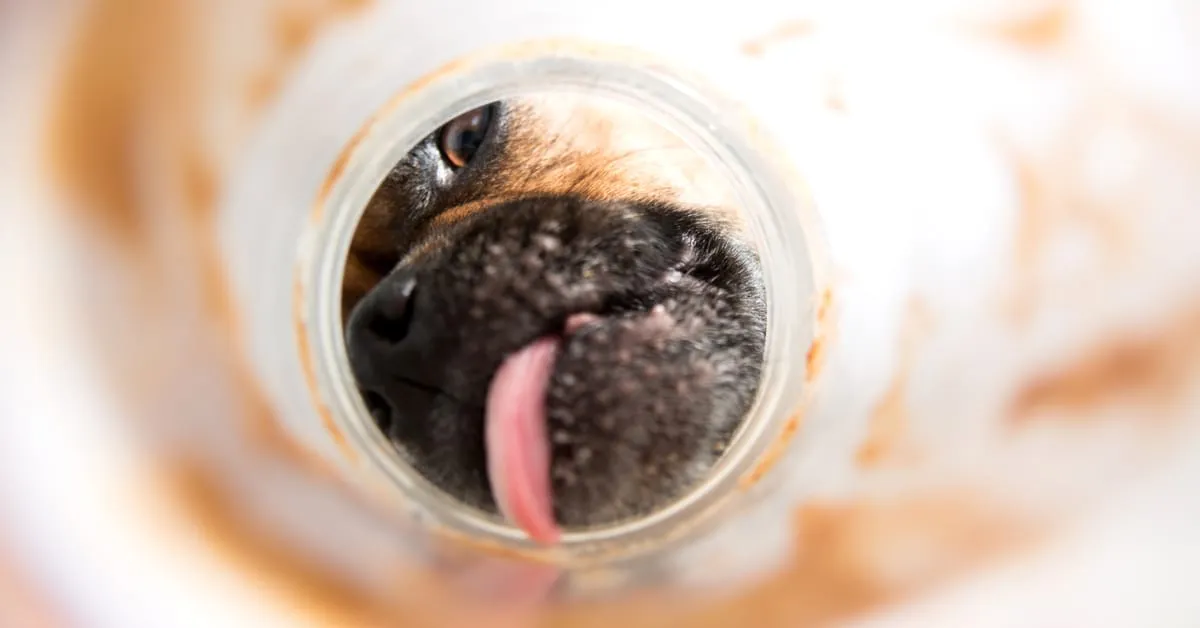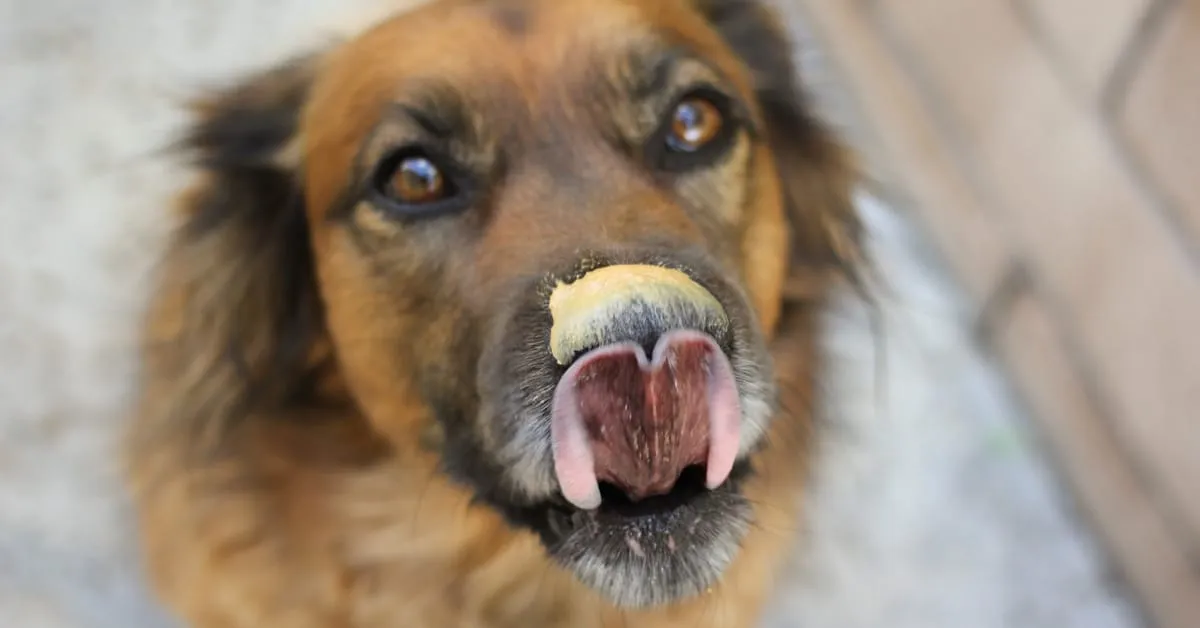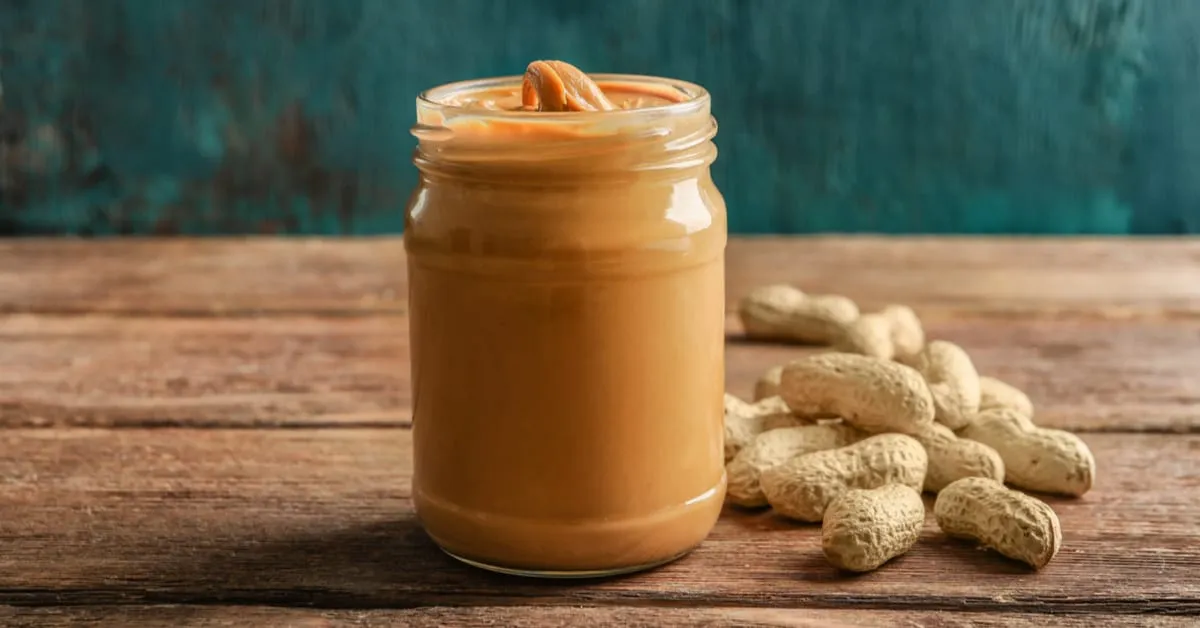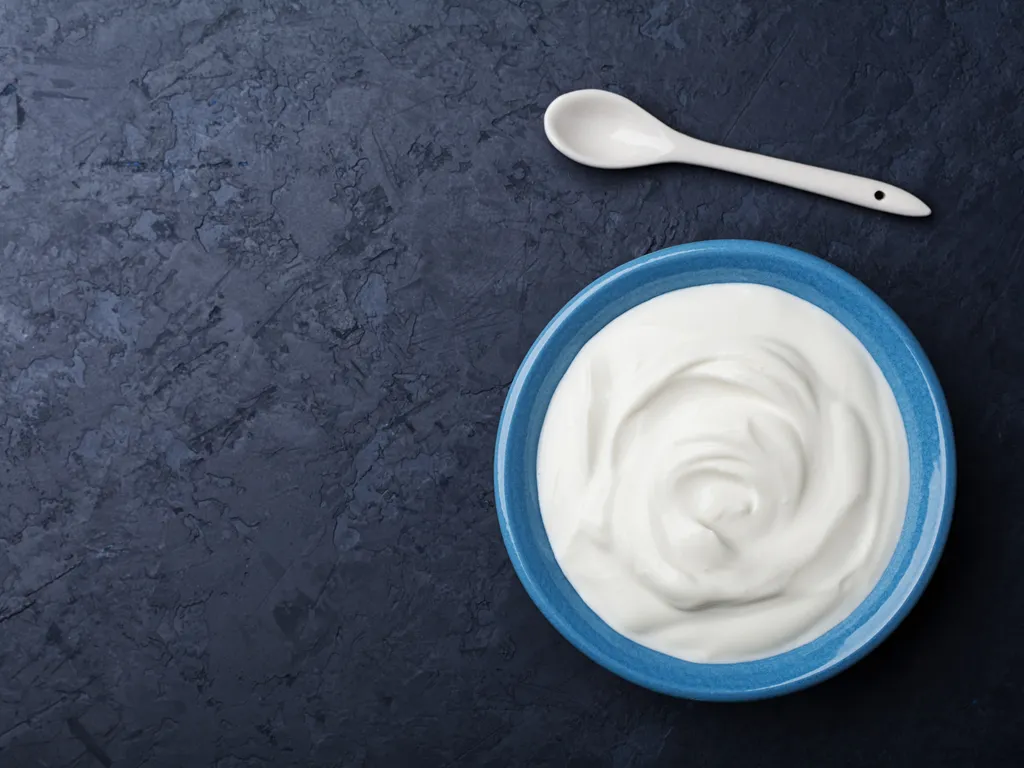Dogs often consider peanut butter the ultimate treat, perfect for stuffing Kongs, spreading on lick mats, or cleverly hiding pills. Freezing these delightful concoctions can extend their enjoyment, sending most pups into a state of blissful licking until every last trace is gone. However, as a responsible dog owner, it’s absolutely vital to understand that not all peanut butter is created equal. Giving your furry friend the wrong kind can have serious health consequences.
This guide will help you navigate the aisles, identifying which brands are safe, what ingredients to actively seek out (and rigorously avoid), and the critical dangers associated with unsafe peanut butter. Understanding these distinctions is paramount for safeguarding your dog’s health. You can also explore a broader range of safe human foods for dogs to ensure a healthy and happy diet.
What to Look For in Dog-Safe Peanut Butter
When selecting peanut butter for your beloved canine, simplicity is key. The best option will be natural peanut butter, ideally without any added sugar or artificial sweeteners. It is crucial to check labels for terms like “no added salt” or “unsalted.” Ingredients such as preservatives, hydrogenated vegetable oils, and excessive added sugars are best avoided.
For optimal safety, dog-safe peanut butter should ideally contain no more than two ingredients: peanuts and salt. The most dangerous ingredient to watch out for is xylitol, often disguised as “birch sugar,” “birch xylitol,” or “wood sugar alcohol” on ingredient lists. Always scrutinize labels for these terms.
 A jar of peanut butter with a "Birch Sugar" warning label, highlighting the hidden danger of xylitol for dogs.
A jar of peanut butter with a "Birch Sugar" warning label, highlighting the hidden danger of xylitol for dogs.
The Deadly Danger of Xylitol and Birch Sugar
Xylitol is a sugar substitute commonly found in many “sugar-free” products, including chewing gums, candies, certain baked goods, and unfortunately, some peanut butter brands. This ingredient is highly toxic to dogs and poses an extreme risk. Even small amounts can trigger a rapid release of insulin, leading to a sudden and severe drop in blood sugar, known as hypoglycemia.
Dogs who ingest foods containing xylitol can suffer from a range of severe health issues, including:
- Hypoglycemia (dangerously low blood sugar)
- Seizures
- Acute liver failure
- Potentially, death
If you suspect your dog has consumed anything containing xylitol, seek immediate veterinary care. Xylitol is absorbed very quickly into a dog’s system, making swift intervention critical for their survival and recovery.
Safe Peanut Butter Brands for Your Canine Companion
To assist pet owners, reputable organizations like Dog Lab extensively review pet products. They surveyed dog owners, consulted veterinarians, canine nutritionists, and animal behaviorists, testing over 50 types of peanut butter to identify the healthiest options for dogs. Their findings offer excellent guidance for choosing a safe spread.
Dog Lab’s top recommendation for the best peanut butter for dogs is Whole Foods’ 365 brand smooth peanut butter. Its 365 Everyday Value Organic Peanut Butter stands out because it contains only one ingredient: peanuts. This “less is more” philosophy ensures no extra salt, sugar, additives, or unpronounceable ingredients, just 100% natural, creamy peanut butter. Another excellent and budget-friendly alternative is Trader Joe’s No Salt Peanut Butter, which shares the same simple ingredient profile as the 365 brand.
For those who prefer a bit of texture, Teddie Super Chunky Peanut Butter was chosen as the best crunchy option safe for both humans and their furry companions. Additionally, consider Poochie Peanut Butter, a brand specifically formulated for dogs. This specialty peanut butter includes health-boosting natural ingredients like turmeric, flaxseed, parsley, and ginger, and generously donates 10% of its profits to animal shelters. These options are among the many foods safe for dogs to eat.
Dog Safe Peanut Butter Brands:
- Whole Foods 365 Everyday Value Organic Peanut Butter
- Trader Joe’s Peanut Butter (No Salt)
- Teddie Super Chunky Peanut Butter
- Poochie Dog Peanut Butter
 A dog's nose sniffs curiously at a jar of dog-safe peanut butter, demonstrating interest in the treat.
A dog's nose sniffs curiously at a jar of dog-safe peanut butter, demonstrating interest in the treat.
Moderation is Key: Even Safe Peanut Butter has Limits
While peanut butter does contain a fair amount of healthy fats, it is crucial to offer it to your dog in strict moderation. Overindulgence, even with a dog-safe brand, can lead to serious health issues. High-fat diets contribute significantly to canine obesity, a condition that can result in various secondary health problems. Moreover, excessive fat intake can trigger life-threatening pancreatitis, an inflammation of the pancreas that is often very painful and requires intensive veterinary care.
Remember, treats and snacks, including peanut butter, should only constitute a small portion – ideally no more than 10% – of your dog’s total daily caloric intake. The majority of your pup’s essential nutrients should always come from a balanced, high-quality dog food designed for their specific needs.
Peanut Butter Brands to Avoid at All Costs
Beyond xylitol, many common grocery store peanut butter brands contain other additives that are unsuitable or even harmful to dogs. These can include trans fats, excessive sweeteners (like corn syrup), and other unnecessary ingredients that offer no nutritional benefit to your pet. Pet owners should never share these types of peanut butters with their dogs, regardless of how much their dog begs.
Here’s a list of widely available peanut butter brands that typically contain undesirable additives and should be avoided:
- Skippy peanut butter
- Peter Pan brand PB
- Jif peanut butter
- Nuts ‘n More
- Krush Nutrition
- Go Nuts Co
- Amazon brand/Happy Belly PB
It’s important to note that a peanut butter product being labeled “xylitol-free” does not automatically mean it is dog-friendly. Some “natural” labeled peanut butters, such as Skippy Natural or Jif Natural peanut butter spread, may be free of xylitol but are still not recommended due to the inclusion of additives like corn syrup and trans fats. Even some brands marketed for pets can be problematic; for example, Dog Lab notes Kong Real Peanut Butter often contains sugar and hydrogenated vegetable oil, while DogButter includes palm oil, another ingredient best avoided. When in doubt, it’s always best to err on the side of caution. For a comprehensive list of what foods dogs cannot have, refer to our detailed guide.
 A variety of commercial peanut butter jars displayed on a shelf, representing brands that may contain harmful ingredients for dogs.
A variety of commercial peanut butter jars displayed on a shelf, representing brands that may contain harmful ingredients for dogs.
DIY: Make Your Own Dog-Friendly Peanut Butter
If you want complete control over your dog’s treats and ingredients, making your own homemade peanut butter is a fantastic and surprisingly simple option. All you need are unsalted peanuts and a good food processor.
Simply add the unsalted peanuts to your food processor and blend. Initially, they will turn into a coarse meal, then a sticky ball, and finally, after about 5 to 10 minutes of processing, they will transform into a smooth, creamy peanut butter. Making your own ensures you know exactly what your dog is consuming, free from any hidden sugars, salts, or harmful additives. This method guarantees a truly healthy and safe treat.
Delicious & Safe Peanut Butter Alternatives for Dogs
It might be surprising, but some dogs simply don’t enjoy peanut butter, or perhaps they have a peanut allergy. Fortunately, there’s a world of delicious and safe alternatives to explore, both nut-based and nut-free, that can be used for treat stuffing or as standalone snacks. These options ensure your dog still gets delightful treats without any of the risks.
For dogs that can tolerate nuts and enjoy the flavor, almond butter, sunflower seed butter, and cashew butter are generally considered safe alternatives. However, it’s crucial to remember that these nut butters also have a very high-fat content. Therefore, they should be given in strict moderation, just like peanut butter, to avoid potential weight gain or pancreatitis.
If you’re looking for healthy peanut butter alternatives that can be easily stuffed into treat dispensers and are entirely free of nuts, consider these excellent options:
- Low-fat plain Greek yogurt (ensure no artificial sweeteners)
- Cream cheese (in small amounts)
- Pumpkin puree (plain, unsweetened, not pumpkin pie filling)
- Green beans (cooked or raw)
- Watermelon (seedless)
- Baby food (plain, meat-based options without onion or garlic powder)
 A small dog enjoying a treat of Greek yogurt, showcasing a safe and healthy alternative to peanut butter.
A small dog enjoying a treat of Greek yogurt, showcasing a safe and healthy alternative to peanut butter.
Nuts to Always Avoid for Dogs
While some nut butters are acceptable in moderation, many whole nuts are either unhealthy or highly toxic to dogs and should always be avoided. Never feed your dog the following nuts:
- Hazelnuts
- Macadamia nuts
- Pecans
- Walnuts
- Pistachios
These nuts can cause various health problems, ranging from digestive upset to neurological symptoms and severe illness. Always keep them out of your dog’s reach to prevent accidental ingestion. You can learn more about specific meats that are dangerous for dogs in our comprehensive article.
Conclusion
Peanut butter can be a wonderful, enjoyable treat for many dogs, but as discerning pet owners, it’s our responsibility to ensure their safety and well-being. The key takeaway is simple: always be vigilant about reading ingredient labels. Prioritize natural, unsalted peanut butter with no added sugars or, most critically, xylitol (also known as birch sugar). When in doubt, opt for a brand specifically formulated for dogs or consider making your own.
Remember that even safe peanut butter should be given in moderation to prevent obesity and other health issues like pancreatitis. By being informed and making conscious choices, you can continue to treat your canine companion safely. If you have any concerns about your dog’s diet or specific health conditions, always consult your veterinarian for personalized advice. Explore our other articles for more tips on dog care and nutrition!
